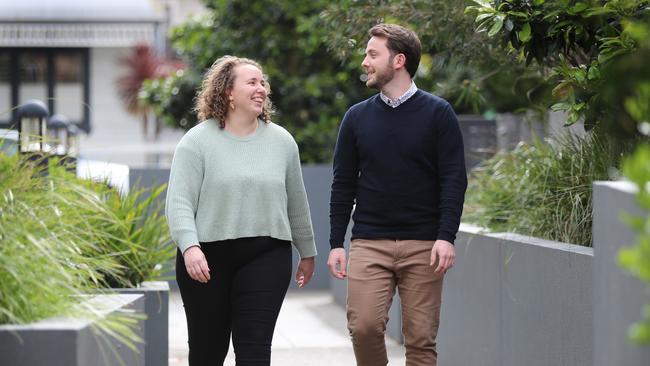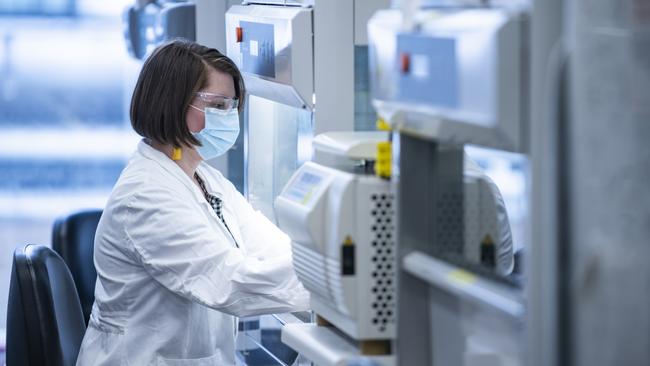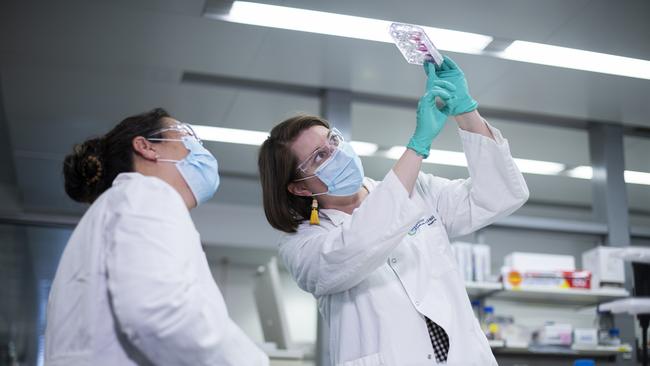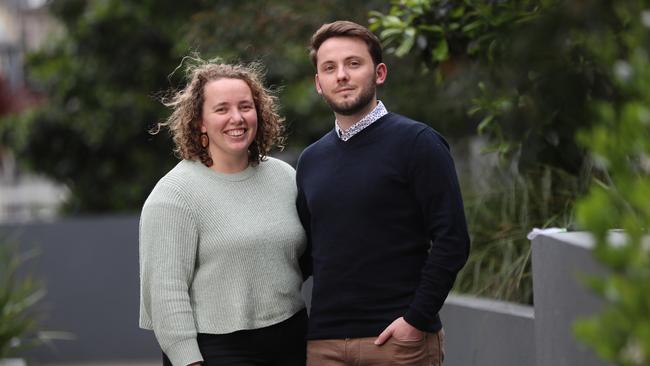Landmark research project launched into how long coronavirus immunity lasts after infection
Coronavirus immunity may not last very long after patients recover, with a landmark study launched into discovering whether survivors can be infected a second time.

HS Coronavirus News
Don't miss out on the headlines from HS Coronavirus News. Followed categories will be added to My News.
Melbourne scientists believe COVID-19 may become a recurring illness, with immunity lasting as little as a few months after a person recovers from their initial infection.
As teams around the world race to produce a vaccine against the new coronavirus, some of Melbourne’s leading researchers are launching a major study to track Victorians after they recover from COVID-19 to reveal how – and how long – they are protected from coronavirus. Led by the Walter and Eliza Hall Institute, the collaboration hopes to explain whether future vaccines will need to be given only once, or whether populations will need regular doses such as annual flu shots.
But as more is known about the new coronavirus lead researcher Professor Ivo Mueller said it was now “relatively clear” immunity only lasted a few months after a person recovered from an infection.
“The evidence is more pointing that this could be a disease that can infect people multiple times – but hopefully at less intensity and less severely,” Prof Mueller said.
“That doesn’t necessarily mean people will lose their immunity completely because it is possible that you can get reinfected and have a mild disease because your immunity still mounts a robust and quick response and can then overtake the virus very quickly.
“That is really important to understand because that will tell us in which direction the virus and the pandemic will evolve in the long term.

“That will also have implications for vaccines because that may mean the vaccine may not be able to give a lifelong protection and therefore people have to get revaccinated.”
So far only two cases of people being reinfected with COVID-19 have been confirmed around the world, although there have been further anecdotal cases reported.
In collaboration with the Royal Melbourne Hospital, the University of Melbourne and the Doherty Institute, the COVID PROFILE study will use blood and swap samples to track 300 past COVID-19 sufferers and close contacts to examine their immune response over the next 12 months.
As well as aiding protocols for potential vaccines, the results are hoped to help populations adapt to a so-called ‘COVID-normal’ by better understanding who is at risk of infection. Typically, when infected with coronavirus the human immune system responds with two main defences which appear able to protect for differing periods.
The first defence are antibodies produced in mucous membrane to form a protective sterile barrier in the throat and nose and able to stop the virus taking hold.
However, Professor Muller said it now appeared the barrier may only last as little as two months.
“They may disappear relatively quickly and that means the virus can again recolonise in mucosal membranes and cause an infection again,” he said.
The second line of defence releases a range of antibodies into a person’s blood to fight the virus.
Although levels of blood antibodies also rapidly drop three or four months after infection, WEHI investigator Dr Vanessa Bryant said it appears the immune system is able to switch the second response back on later if it detects coronavirus again.
Dr Bryant said vital T-cells and B-cell in the immune system appeared to remember the coronavirus, allowing it to react and reproduce the blood antibodies if reinfected.
If confirmed, it would mean that although the body’s first line of defence is unable to stop a person suffering repeat COVID-19 infections, the second defence may be able to reduce its impact.
“They (blood antibodies) hang around for a long time in very small numbers but, once they recognise that virus again for a second, third, fourth or fifth time, they are armed and ready to rapidly proliferate and produce that arsenal of antibodies,” Dr Bryant said.
“Individuals might not be protected against reinfection per se if those circulating antibodies start to wane, but they will likely be protected against high viral loads and actually experience reduced disease because that robust memory immune response that kicks in and is able to act incredibly quickly.”

Vaccines under development around the world are seeking to mimic both lines of defence, though may not be able to trigger the body to produce the full range of antibodies that having an actual COVID-19 infection does.
As well as examining the immune response recovered Victorians, the WEHI researchers are hoping for close contacts who did not contract COVID-19 also volunteer for the study in order to examine genetic and other changes occur.
Anyone wanting to take part in the COVID PROFILE study can visit www.wehi.edu.au/covid-profile
SUVIVOR’S STORY
Having gone through COVID-19 once already, Andrew Clarke is desperate not to suffer it again.
“After the first – and hopefully last – infection, I thought to myself ‘I couldn’t do that again’,” Mr Clarke said.
“The fatigue for me was the worst and it was pretty severe, followed by the muscle aches. We were very heavily congested for more than a week.
“Since returning to work it has been two months and I am still having headaches every day and ongoing dizziness.”
Working as a nurse, Mr Clarke tested positive for coronavirus on August 4, followed two days later by his fiance Leah Woods.

While his personal experience may have been enough to never want to experience COVID-19 again, it was the horror of what Mr Clarke saw at work that has driven he and Ms Woods to take part in research to better understand immunity – though he is now desperate to learn if and when he can get catch the virus again.
“Mine was mild in comparison to how a lot of other people’s infections played out, but I brought it home and gave it to me fiance as well,” Mr Clarke said.
“At the time it felt pretty bad … but when you come out the other end and see people die and on ventilators you think ‘we didn’t have it that bad’.
“We asked those questions (about immunity) right at the start and nobody seemed to be able to give us a definitive answer.
“We kind of knew it might not be long lasting, but it pretty scary to think you could get it again.”
MORE NEWS
IVF BUNGLE MAY HAVE ROBBED WOMEN OF BABY CHANCE
NEW BREAKTHROUGH IN FIGHT AGAINST MND
